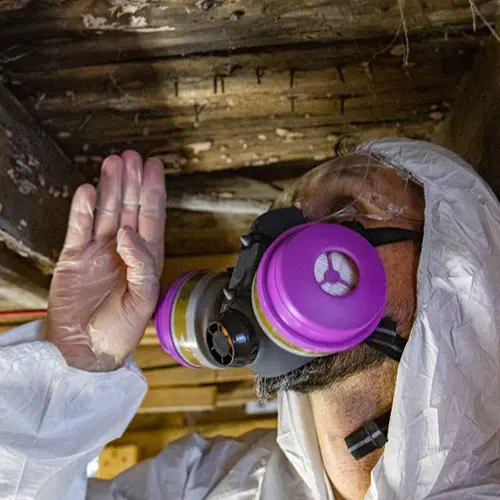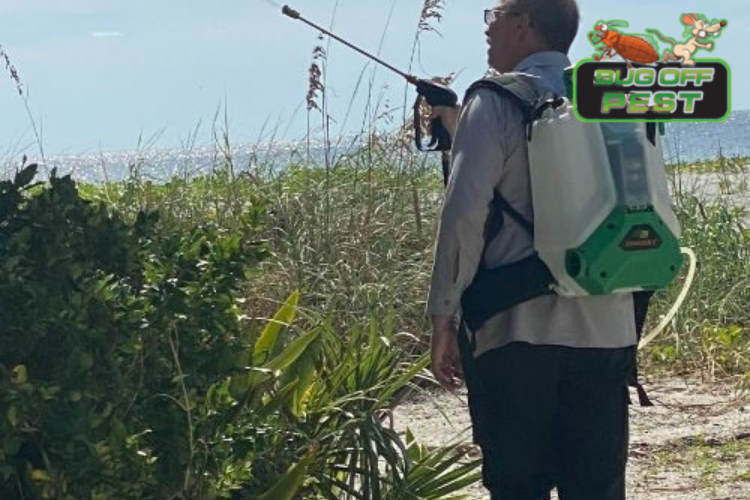Reliable Rodent Control Port Charlotte to Keep Your Home Pest-Free
Reliable Rodent Control Port Charlotte to Keep Your Home Pest-Free
Blog Article
Uncover the Importance of Insect Control in Keeping a Healthy And Balanced Setting and Therapy Techniques

The Role of Pests in Ecological Communities
Pests, usually watched entirely as hassles, play a multifaceted function in environments that is vital for preserving environmental equilibrium. They add significantly to numerous ecological procedures, consisting of pollination, vitamins and mineral cycling, and pest control. As an example, many insect species, such as and butterflies, are necessary pollinators for a large range of plants, which subsequently sustains biodiversity and food production.
Furthermore, bugs work as target for various predators, creating a critical link in food webs. This interdependence ensures the survival of numerous types and helps regulate populaces within communities (Termite treatment Port Charlotte). Decomposer pests, such as particular beetles and fungis, are important in damaging down organic matter, hence enhancing dirt and facilitating nutrition recycling.
Alternatively, while parasites can be advantageous, their overpopulation or intrusion right into non-native atmospheres may disrupt these eco-friendly features. This intricacy emphasizes the value of understanding bug dynamics, as effective insect administration approaches need to think about both their ecological functions and possible influences on human activities. Balancing pest existence while minimizing damage is vital for maintaining the integrity of ecosystems and making sure agricultural productivity.
Wellness Dangers Related To Pests
The existence of bugs in various environments extends past their environmental duties, as they additionally position considerable health and wellness threats to people and animals. Several insects, consisting of bugs, rats, and bloodsuckers, are service providers of conditions that can have significant health and wellness ramifications. Rats are known to transmit hantavirus and leptospirosis, both of which can lead to severe breathing and kidney problems, respectively.
Bugs such as mosquitoes and ticks are well known for spreading out vector-borne diseases like jungle fever, dengue fever, and Lyme illness. These illnesses can result in high morbidity and mortality rates, especially in prone populaces. In addition, pests like cockroaches and bedbugs can exacerbate allergies and asthma, adding to respiratory system troubles in people, especially those with pre-existing conditions.
Furthermore, the presence of pests can cause emotional anxiety and discomfort, impacting total health. Contamination of food and surface areas by parasite droppings and continues to be can cause foodborne health problems, highlighting the significance of keeping sanitary problems. Consequently, understanding the health threats connected with bugs is vital in acknowledging the requirement of reliable parasite monitoring approaches to safeguard animal and human wellness.

Benefits of Efficient Pest Control
Reliable parasite control is crucial for preserving a safe and healthy and balanced setting, as it regularly reduces the various threats connected with insect problems. One of the main advantages of efficient bug management is the reduction of health and wellness hazards.
Additionally, reliable bug control safeguards property and structures from damage. Several parasites, like termites and carpenter ants, can cause extensive structural damage that may require costly repairs. By proactively handling these infestations, homeowners and businesses can shield their investments.
Another substantial advantage is the improvement of general quality of life. A pest-free setting adds to psychological wellness and reduces stress and anxiety connected with invasions. Additionally, effective bug control fosters a safer environment for kids and pet dogs, making certain that homes stay refuges without disease-causing organisms and harmful chemicals.
Typical Insect Control Methods

In the realm of insect administration, various methods are employed to battle infestations successfully. These techniques can be broadly categorized into three primary learn this here now strategies: cultural, mechanical, and chemical controls.
Social control entails modifying practices to lower bug reproduction, survival, and facility. This might consist of plant turning, proper sanitation, and habitat manipulation, which jointly create an environment less for pest expansion.
Mechanical control employs physical approaches to get rid of parasites (Termite treatment Port Charlotte). Techniques such as vacuums, barriers, and catches are commonly utilized to straight remove parasites from a location. This strategy is particularly reliable for managing rodents and pests without the usage of dangerous chemicals
Chemical control involves the application of pesticides to take care of bugs. These compounds can be categorized right into herbicides, insecticides, and fungicides, each targeting specific sorts of bugs. It is vital to make use of these chemicals deliberately, sticking to safety and security guidelines and laws to decrease prospective injury to non-target types and the setting.
Each bug control method has its constraints and benefits, and typically, an incorporated technique combining multiple techniques yields the very best lead to preserving a pest-free atmosphere.
Lasting Bug Management Practices
Sustainable parasite monitoring practices encompass a variety of approaches made to reduce ecological influence while successfully managing insect populations. These techniques focus on the usage of environmentally friendly approaches over chemical pesticides, consequently lowering the danger of damage to non-target species, including helpful bugs, wild animals, and humans.
Integrated Parasite Management (IPM) is a cornerstone of sustainable practices, combining biological, cultural, mechanical, and chemical tactics to handle pests. Organic control includes introducing natural killers or bloodsuckers to subdue insect populaces. Social practices, such as plant turning and polyculture, interfere with pest life cycles and improve community durability.
Mechanical techniques, such as traps or barriers, can properly protect against bug access without chemical treatment. Additionally, keeping healthy environments with appropriate soil management, plant wellness, and biodiversity can normally reduce bug concerns.
Education and learning and understanding are vital parts, empowering individuals and neighborhoods see this here to acknowledge bug hazards early and implement safety nets. Termite treatment Port Charlotte. By promoting an all natural approach that balances parasite control with eco-friendly stability, lasting bug monitoring practices not just safeguard plants and structures but additionally contribute to a healthier environment for future generations
Final Thought

Recognizing the health risks linked with insects is critical in identifying the necessity of reliable bug monitoring approaches to guard animal and human health.
Effective pest control is important for preserving a healthy and balanced and safe environment, as it consistently reduces the many dangers associated with bug invasions.Integrated Pest check my site Monitoring (IPM) is a foundation of sustainable methods, combining biological, social, mechanical, and chemical strategies to handle bugs. By comprehending the function of insects, identifying connected health and wellness dangers, and using diverse therapy methods, a sustainable strategy to pest management can be accomplished. Integrated Insect Monitoring (IPM) emphasizes an alternative approach that mitigates injury to useful microorganisms while efficiently regulating parasite populations.
Report this page